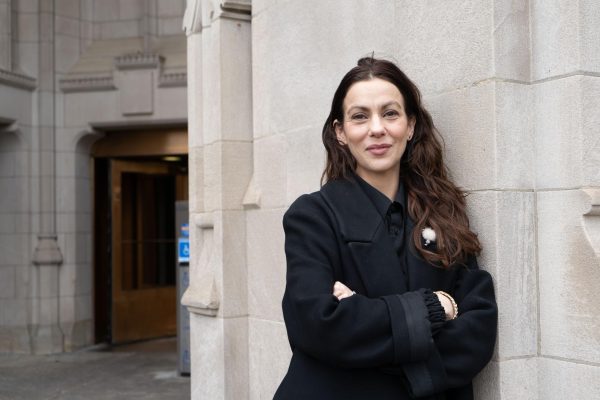Brown: Rockin’ in the dream world
February 26, 2010
If ever there were a social barometer for young people in the United States, it would be rock… If ever there were a social barometer for young people in the United States, it would be rock ‘n’ roll.
As the music of youthful rebellion, rock has served to carry meaningful messages to different generations of listeners. But the messages over the last 20 years have served as little more than a platform for confusion and failure.
During the early and mid-1990s, the grunge era told people our age that it was OK to become social recluses, to hate life and everything it entailed.
For all of its fallacies, grunge at least had a direction. Following it, we had a sloppy mix of mainstream punk — mostly about parent-hating and drug use — and some pop-rock. Although there were some standouts in the 1990s, most of it was rubbish.
Into the 2000s, rock has further morphed into a convoluted mess that doesn’t relate to its audience. If nothing else could demonstrate just how bad it’s gotten, Nickelback had the top-selling rock album of 2009.
Back when singers actually brushed their teeth with a bottle of Jack instead of simply talking about it for shock value, the music was great. Instead of consisting purely of whiny, irritable impertinence, rock used to tell America’s youth to aspire to be somebody.
Rock in the 1970s and 1980s was about having a good time and taking whatever you could fit into a suitcase with you on your exodus to Los Angeles or New York. It was about living for your dream, taking a chance and hopefully making it big.
I’ve thought about this for the better part of this week. As you read this, I am in New York preparing for what I’m hoping will be the first step of the rest of my life, professionally speaking.
Instead of skin-tight, leopard-print spandex, I’m wearing a suit. Instead of a guitar, I’m wielding a briefcase with my portfolio and a few copies of my resumé in it.
Make no doubt about it, I’m shooting for my chance to become a rock star, too. Chances are that by now, my brother has already threatened to throw my MP3 player out of my car thanks to my having played AC/DC’s “It’s a Long Way to the Top” several dozen times.
Two years ago, I spoke with a classmate of mine who told me that she wanted to be a professional music video dance choreographer. She was thinking about moving out to California on a whim to see what she could do. But I don’t think she ever got past the planning stages.
In mentioning this, I’m not advocating dropping out of college and chasing something that isn’t there. But you’re only young once, and doing something somewhat irrational in the off chance of finding fame or enlightenment is better than leading a life of quiet desperation. The odds are against you, and graduating seniors face a tough market. Congrats if you find that steady job, but what if you waited and instead took that chance? It’s a bold move considering today’s job market, but it could be your only opportunity.
Over the past four years in college, I’ve learned much more outside of the classroom than I have inside of it. But if ever there were a class that taught me something useful, it would be finance. “The greater the risk, the greater the reward,” my professor said almost daily. It’s a shame I got a C in that class.
My professor’s point also stands outside of the realm of discounted cash flows and interest rates. Recent college grads sometimes come out with a sense of entitlement that a diploma that cost five or six figures ought to land them a well paying job immediately. Let’s face it, that’s not usually the case.
Last July, Trina Thompson, a graduate of Monroe College in the Bronx, sued her alma mater for $72,000 because she couldn’t find a job, CNN reported. Her story reads like the lyrics of a Good Charlotte song.
Her graduating GPA was a 2.7, and I haven’t found mention of any activities outside of the classroom she participated in to make herself more marketable. It takes more work just going through the motions to get anywhere, though.
Reflecting back on elementary school days, we all wanted to be astronauts, paleontologists and, yes, even rock stars. But getting older has made our generation reprioritize life, as it does with every generation. Ask working professionals what they wanted to do when they were young. Chances are it wasn’t what they’re doing now.
Inevitably, “dream” jobs are coined as such because few people ever get past dreaming about them. Often, they take more luck to get than anything else. Gene Simmons was a school teacher before meeting the members of what became KISS. But he seized his opportunity when it arose, giving up the security of his day job.
Similarly, I have no idea if taking a 400-mile trip to New York is a smart idea, but I’m about to find out. Let’s rock and roll.
E-mail Jacob at [email protected].







